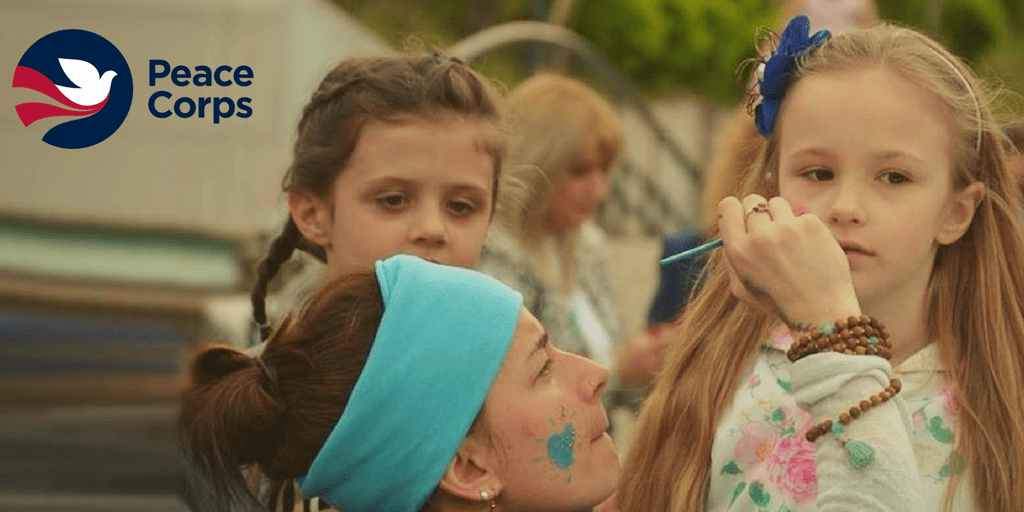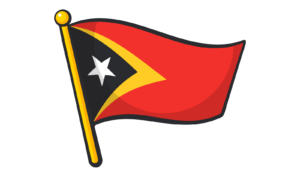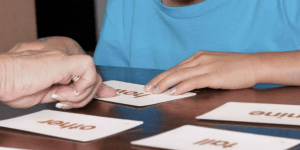Being a Peace Corps volunteer in Macedonia (FYROM) and working in the education sector has been a one-of-a-kind, transformative experience.
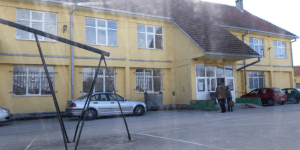 The Peace Corps is a United States government agency that began in 1961 under the influence of the late John F. Kennedy’s leadership. He inspired a new generation of Americans to put their hands to the plow by paying it forward in a community overseas for a two-year service assignment. Consequently, the altruistic agency whose mission is “to promote world peace and friendship” has been going strong ever since with over 225,000 Americans answering the call to service in a variety of developmental assignments. While I did not spend most of my life dreaming of serving in the Peace Corps, I appreciate the opportunity the invitation to serve has afforded me in this unique yet challenging two-year period of my life.
The Peace Corps is a United States government agency that began in 1961 under the influence of the late John F. Kennedy’s leadership. He inspired a new generation of Americans to put their hands to the plow by paying it forward in a community overseas for a two-year service assignment. Consequently, the altruistic agency whose mission is “to promote world peace and friendship” has been going strong ever since with over 225,000 Americans answering the call to service in a variety of developmental assignments. While I did not spend most of my life dreaming of serving in the Peace Corps, I appreciate the opportunity the invitation to serve has afforded me in this unique yet challenging two-year period of my life.
As a TEFL volunteer in Macedonia (FYROM), I, along with the other teachers in my cohort, had to undergo rigorous training linguistically, technically, culturally and medically. Such training, when applied adequately, would equip us to be effective professionals in our assignments within our respective work sites throughout the country. Our TEFL trainers educated us on the Macedonian education system and how our specific role as English co-teachers would help to move the needle of English education forward as the country aims to develop the next generation of leaders. Did I say co-teachers and not teachers? My primary assignment was to teach English with a Macedonian English teacher at the school where I was assigned for two years. Theoretically, this meant that I would never be allowed to teach a class alone but would work cooperatively with my Macedonian counterpart to plan and execute lessons, to manage the class, to administer assessments and to introduce novel teaching methodologies that my co-teacher could incorporate into her own pedagogical praxis.
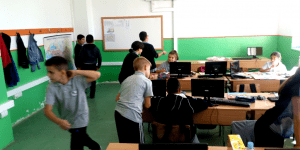 Typically, Macedonian students’ classroom-based English learning stems primarily from the grammar-translation method in which pupils learn to read and write in the language prior to knowing how to communicate orally and confidently in it. The said method takes the form of numerous textbook exercises with often little room for creative activities that will encourage or even permit students to speak and listen in an interactive environment. Thus, the grammar-translation method is more teacher-centered and not student-centered, something I quickly noticed as I observed classes during my first week at site. My work was easily discernible. How could I introduce a more student-centered approach in the classroom without stepping on my co-teacher’s toes? Would she be willing to accept my ideas and input for the sake of student learning? What would my specialized role be at this school that had never before had a volunteer?
Typically, Macedonian students’ classroom-based English learning stems primarily from the grammar-translation method in which pupils learn to read and write in the language prior to knowing how to communicate orally and confidently in it. The said method takes the form of numerous textbook exercises with often little room for creative activities that will encourage or even permit students to speak and listen in an interactive environment. Thus, the grammar-translation method is more teacher-centered and not student-centered, something I quickly noticed as I observed classes during my first week at site. My work was easily discernible. How could I introduce a more student-centered approach in the classroom without stepping on my co-teacher’s toes? Would she be willing to accept my ideas and input for the sake of student learning? What would my specialized role be at this school that had never before had a volunteer?
These questions did not come with accessible answers overnight. It took trial and error, much patience, flexibility and resourcefulness to try and make progress. Once my teaching schedule was made and I was in the classroom ready to do what I love, I found that my counterpart would suddenly ask me to think of games or learner-friendly tasks that would more actively engage the students. As I dug into the mental arsenal of TEFL resources I had accrued over the course of my teaching career, games like Simon Says, songs like “Head, Shoulders, Knees and Toes” or total physical response (TPR) activities like running dictation became ways in which I could build a special rapport with students, conveying the implicit message that learning, understanding and communicating in English can be fun, versatile and practical. Slowly but surely my counterpart adapted to my teaching style yet still fought to sustain the status quo because it was what she knew best. While we certainly had our differences, I managed to do what I could to leave a positive impression on both the students and my colleagues at the rural primary school in Macedonia’s southernmost municipality (Greece was just over the rustic border).
In retrospect, I think the best investment I could have made in the English education of my students rests in our work together after school for extracurricular purposes. For instance, preparing pupils for the annual spelling bee competition both locally and regionally, conducting writing workshops to facilitate their essay writing skills for the Macedonia English Essay Challenge I co-organized in my second year of service, introducing the Friday movie matinee screenings, hosting the summer traveling camp in my village, implementing the popular Peace Corps world map project, and, finally, just being available to answer their questions about my life and culture as an American. My dearest students visited my home, not an uncommon fact for Peace Corps volunteers the world over, played sports together, strolled through the village, frolicked with the array of stray animals and even recorded YouTube videos in English.
Oftentimes, I felt like this was my true life work in Macedonia (FYROM) more so than being a traditional classroom imparter of knowledge. The real world scenarios of being in the community, present, alive and active (a site flower of sorts as we say in Peace Corps lingo) and visible to the local people I was committed to serving wholeheartedly have constituted the fulfillment of my purpose not only as an educator, but also as an overarching ambassador of my country at large. Peace Corps: America’s best diplomats as I heard an esteemed individual say early on in my journey. Humbly proud am I to have taken this path in life, an unparalleled leadership experience in international development/service for capacity and character building windows of opportunity.

